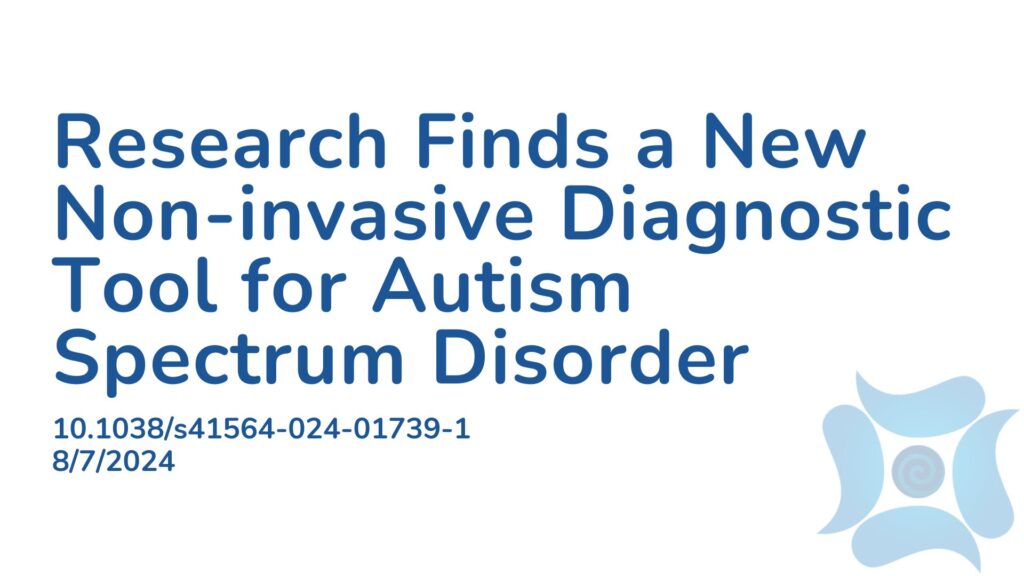Summary:
Associations between the gut microbiome and autism spectrum disorder (ASD) have been explored, but not thoroughly. It remains unclear if bacteria, fungi, viruses, or the overall function of the gut microbiome are altered in ASD. This study aimed to determine if the gut microbiome could enhance the diagnostic process by using it as a detection method for children with ASD who have altered microbiomes. Fecal samples from 1,627 children (aged 1-13 years) with and without ASD were taken and assessed. Analysis showed alterations in bacteria, fungi, viruses, microbial genes, and metabolic pathways in children with ASD. This meant that the analysis was able to differentiate children with ASD from children without ASD, relevant to both males and females. These findings highlight the potential of functional gut microbiota markers as non-invasive diagnostic tools for ASD.
Abstract:
Associations between the gut microbiome and autism spectrum disorder (ASD) have been investigated although most studies have focused on the bacterial component of the microbiome. Whether gut archaea, fungi and viruses, or function of the gut microbiome, is altered in ASD is unclear. Here we performed metagenomic sequencing on faecal samples from 1,627 children (aged 1–13 years, 24.4% female) with or without ASD, with extensive phenotype data. Integrated analyses revealed that 14 archaea, 51 bacteria, 7 fungi, 18 viruses, 27 microbial genes and 12 metabolic pathways were altered in children with ASD. Machine learning using single-kingdom panels showed area under the curve (AUC) of 0.68 to 0.87 in differentiating children with ASD from those that are neurotypical. A panel of 31 multikingdom and functional markers showed a superior diagnostic accuracy with an AUC of 0.91, with comparable performance for males and females. Accuracy of the model was predominantly driven by the biosynthesis pathways of ubiquinol-7 or thiamine diphosphate, which were less abundant in children with ASD. Collectively, our findings highlight the potential application of multikingdom and functional gut microbiota markers as non-invasive diagnostic tools in ASD.
Article Publication Date: 8/7/2024
DOI: 10.1038/s41564-024-01739-1



